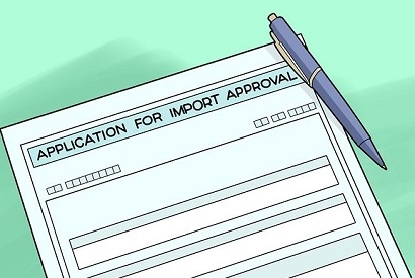
One must have:
– Driver’s license (Führerschein)
German Driver’s License
If one stays in Germany for more than 12 months he will need a German license. Addresses of driving schools can be found in the local “yellow pages”. Some necessary conditions of the obtaining German license:
1. Passing a theoretical and a practical test
2. Passing a First Aid course,
3. No outstanding warrants (Führungszeugnis),
4. Passing a vision examination.
– Cross border stipulations
I Export Permit
The export of cars manufactured in the US is controlled under item 5400 of the Export Control List. However, there would be no need to obtain an individual export permit nor would there be a requirement for prior written authorization before exporting to Germany.
II Customs Tariffs and Import Duties
A motor vehicle is subject to import duties (Zoll) and import value added tax (EinfuhrUmsatzteur / EUST) either when crossing the German border or at a later date.
It is worth to be noted, that vehicles imported for private use for a maximum of 6 months are exempt from taxation under certain conditions.
The vehicle must be registered outside the EU while visiting Germany (a time limit – 6 months). Lending or renting out the vehicle or giving it away for whatever reason to a citizen of an EC member country is prohibited.
The vehicle must not be sold, lent, rented or pawned for one year after import.
After payment of all duties and taxes a customs receipt or clearance certificate (Zollquittung) or otherwise a permit of customs exemption (Unbedenklichkeitsbe-scheinigung) is usually issued. One should remember that this document will be needed to register the vehicle.
The tariff and tax rates are:
– Import duty: 10 % based on the purchase price + freight costs to the place of destination in Germany +freight insurance;
– Value Added Tax (EUST): 15 % based on the purchase price + freight costs + import duty;
– 7% for vintage cars and collector’s vehicles under certain circumstances.
It is recommended for private importers, who do not have a recent invoice of their vehicle to have their car appraised before declaring the value. This should avoid lengthy discussions afterwards.
– Registration of motor vehicles
Foreigners, who stay in Germany temporarily, are allowed to drive their imported motor vehicles with their home license plates and registrations in Germany for a period of up to 12 months, as long as the registration does not expire.
One should obtain a German registration if:
– The car was bought in Germany;
– One plans to stay longer than 12 months;
– Home registration has expired.
IGeneral Operating License (Allgemeine Betriebserlaubnis)
Motor vehicles can only be registered if they are officially licensed by the Federal Motor Vehicle Authority (Kraftfahrtbundesamt / KBA).
Each car is subject to a general inspection including a safety and emissions test. Normally, the importer initiates the procedure for a certain model line. This inspection ensures that the performance of the vehicle meets with German regulations for technical, environmental, and safety standards.
One should not add any modifications or special features to licensed motor vehicles without consulting a certified German expert; otherwise you might lose the operating license, as well as the insurance coverage.
Foreign vehicles imported on private initiative usually do not have the required German title. This must be obtained at the beginning of the registration at the Local Motor Vehicle Branch (KfzZulassungsstelle).
In order to avoid the time-consuming and expensive procedure of gathering the technical features of a car through a general inspection, it is reasonable to contact the manufacturer or importer for information on the vehicle identification number, year of manufacture, type, and technical data such as:
Engine type;
Power (if available DIN hp / kW) at rpm;
Maximum speed;
Emissions results;
Admissible wheel and tire sizes;
Admissible gross front / rear axle weight.
II Registration Procedure (Zulassung)
The registration of each motor vehicle has to be applied for at the Local Motor Vehicle Branch (Kfz-Zulassungsstelle) in the town of residence of the owner or legitimated person.
The following documents are required:
Original title;
Original registration (if a new car: certificate of origin);
Original passport of the person the car is registered to;
Unbedenklichkeitsbescheinigung (customs);
Tax card (customs);
Car license plates (if one doesn’t have them anymore, he needs proof from the police that they got stolen);
Insurance card;
The KFZ Schein and Brief (if the car has been previously registered in Germany).
US and foreign documentation might have to be translated into German (legalized).
Motor vehicle documents are:
the title (Kfz-Brief);
the technical inspection;
the emissions test certificates.
A fee of approximately DM 30 – DM 60 must be paid in cash. One should remember that German authorities do not accept credit cards.
III Insurance Coverage
Germany’s automobile insurance system is strictly regulated by law. Liability insurance for third-party damages is compulsory for each motor vehicle to cover the risks of self-caused accidents (Haftpflichtversicherung).
The following kinds of property damage insurance are available:
– A partially comprehensive insurance (Teil-Kaskoversicherung);
– A fully comprehensive insurance (Voll-Kaskoversicherung);
– A special passenger insurance coverage.
Related articles:
Buying a New Car in Germany
Buying Used Car in Germany
German Cars
Happy Birthday, Beetle!
